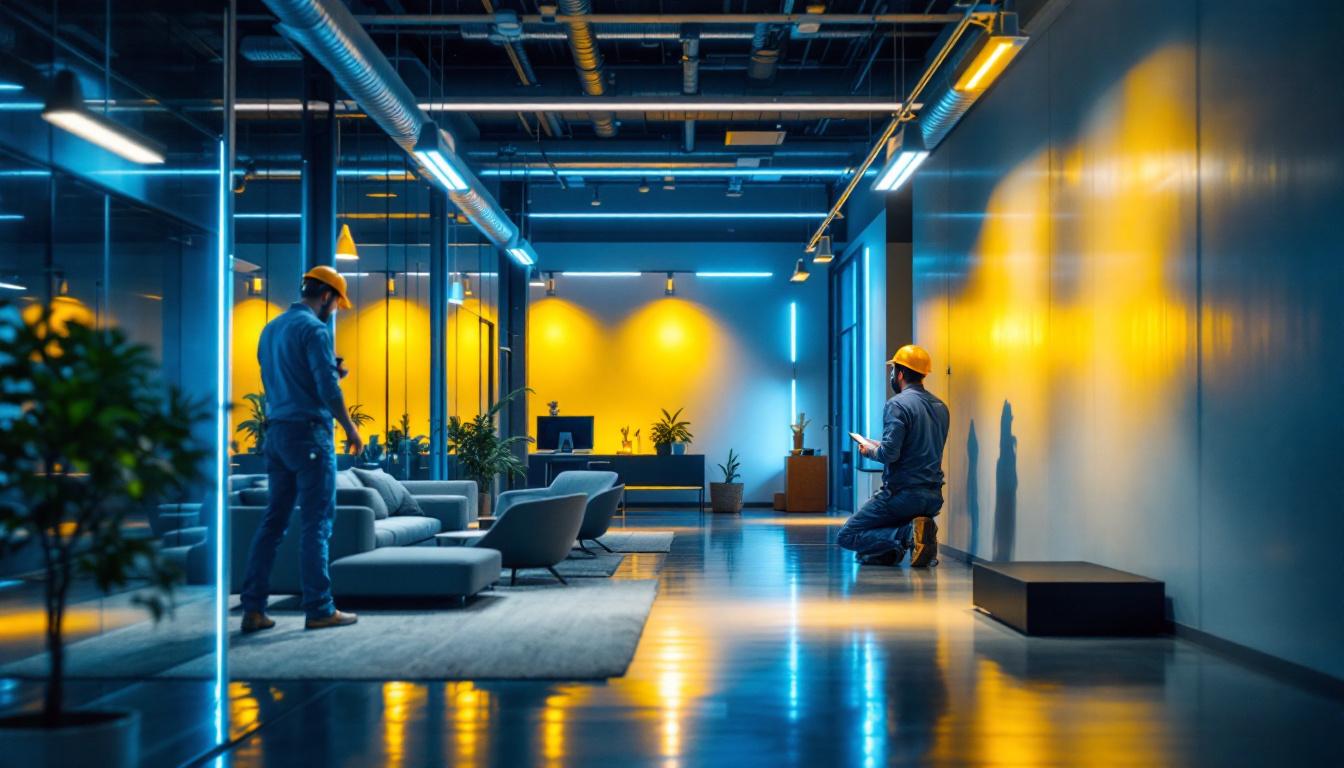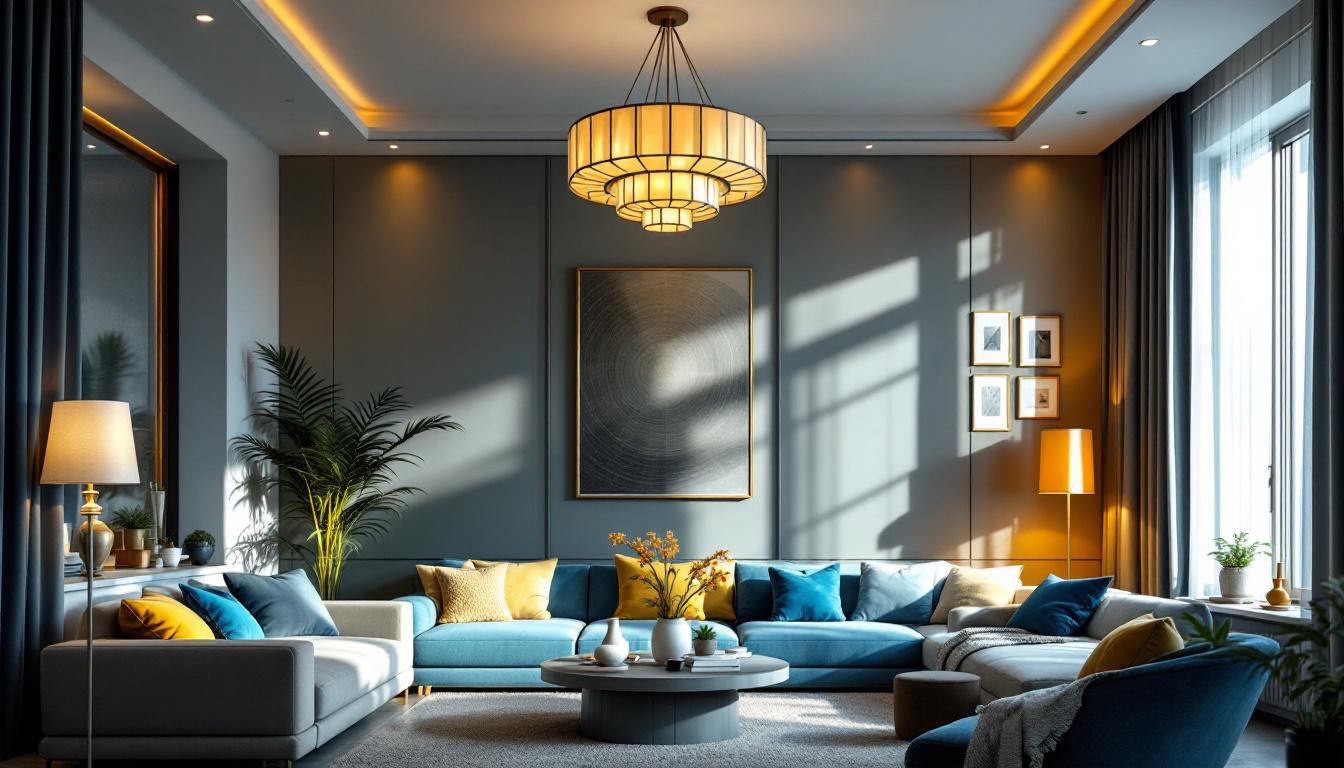
In the world of lighting design and installation, understanding the nuances of lighting can set a contractor apart from the competition. Mastering the art of lighting not only enhances the aesthetic appeal of a space but also improves functionality and energy efficiency. This article delves into the secrets that lighting contractors can harness to elevate their craft and deliver exceptional results to their clients.
Quality lighting plays a crucial role in any environment, whether it’s residential, commercial, or industrial. It can influence mood, productivity, and even safety. Understanding the psychological and practical implications of lighting can help contractors make informed decisions that cater to their clients’ needs.
Lighting has a profound impact on human emotions and behaviors. For instance, warm lighting can create a cozy and inviting atmosphere, while cooler tones can enhance focus and alertness. By selecting the appropriate color temperature and intensity, lighting contractors can significantly influence how a space feels and functions.
Additionally, the use of accent lighting can draw attention to specific features within a room, such as artwork or architectural elements. This not only enhances the aesthetic appeal but also contributes to the overall ambiance, making it essential for contractors to consider these factors during the design phase. Furthermore, studies have shown that natural light can boost mood and well-being, highlighting the importance of incorporating windows and skylights in design plans. The psychological benefits of natural light extend beyond mere aesthetics; they can lead to increased productivity and improved mental health, making it a vital component in both residential and commercial spaces.
Beyond aesthetics, lighting must serve its intended purpose effectively. This includes ensuring adequate illumination for tasks, enhancing visibility in safety-critical areas, and providing energy efficiency. Contractors should conduct thorough assessments of each space to determine the best lighting solutions that balance form and function.
Moreover, integrating smart lighting systems can offer clients greater control over their environments. These systems allow for customization of lighting settings based on the time of day or specific activities, thereby enhancing both convenience and energy savings. The ability to program lighting to adjust automatically can also contribute to energy conservation, reducing utility costs and environmental impact. Additionally, the advent of LED technology has revolutionized the industry, offering longer lifespans and lower energy consumption compared to traditional bulbs. As contractors navigate these advancements, they must stay informed about the latest innovations to provide their clients with the most efficient and effective lighting solutions available.
With the rapid advancement of lighting technologies, it is imperative for contractors to stay informed about the latest developments. This knowledge not only aids in making informed choices but also positions contractors as experts in their field. Staying updated on trends can also enhance a contractor’s reputation, as clients are more likely to trust professionals who demonstrate a commitment to understanding the evolving landscape of lighting solutions.
LED lighting has revolutionized the industry with its energy efficiency and longevity. Unlike traditional incandescent bulbs, which consume more energy and have a shorter lifespan, LEDs can last up to 25 times longer and use significantly less power. This shift not only reduces costs for clients but also aligns with growing sustainability goals. Furthermore, the reduced heat output of LEDs minimizes the risk of burns and fire hazards, making them a safer choice for residential and commercial spaces alike.
Contractors should educate their clients about the benefits of LED lighting, including lower maintenance costs and the reduced environmental impact. Moreover, the versatility of LED technology allows for innovative designs, making it a preferred choice for modern lighting solutions. From adjustable color temperatures that can mimic natural daylight to dimmable options that enhance ambiance, LEDs offer a range of functionalities that cater to various needs and preferences. This adaptability can significantly enhance the aesthetic appeal of a space, making it not just functional but also visually inviting.
Smart lighting systems are becoming increasingly popular, offering enhanced control and customization. These systems can be integrated with home automation technologies, allowing users to manage their lighting through smartphones or voice commands. For contractors, understanding how to install and configure these systems can provide a significant competitive edge. As smart homes continue to gain traction, being well-versed in these technologies can set contractors apart in a crowded market.
Additionally, smart lighting can include features such as motion sensors and timers, which not only improve convenience but also contribute to energy efficiency. These systems can automatically adjust lighting based on occupancy or time of day, ensuring that energy is not wasted when spaces are unoccupied. Educating clients about these advancements can help them make informed decisions that align with their lifestyle and preferences. Moreover, the integration of smart lighting with energy management systems can lead to further savings, as users can monitor and optimize their energy consumption in real time, promoting a more sustainable living environment.
Designing effective lighting involves more than just choosing fixtures; it requires a comprehensive understanding of space, purpose, and aesthetics. Contractors must consider various design principles to create harmonious and functional lighting schemes.
One of the fundamental principles of lighting design is layering. This involves combining different types of lighting—ambient, task, and accent—to create a well-rounded illumination scheme. Ambient lighting provides overall illumination, task lighting focuses on specific activities, and accent lighting highlights particular features.
By effectively layering light, contractors can create depth and dimension within a space. This approach not only enhances the visual appeal but also ensures that the lighting meets the practical needs of the occupants. For instance, in a kitchen, ambient lighting can be achieved through ceiling fixtures, while under-cabinet lights serve as task lighting for food preparation. Accent lighting, such as pendant lights over an island, can draw attention to design elements and create a focal point that adds character to the room.
Natural light is a powerful element that should not be overlooked in lighting design. Understanding how natural light interacts with a space throughout the day can inform decisions about artificial lighting. Contractors should assess the orientation of windows, the presence of obstructions, and the overall layout to maximize the benefits of daylight.
Incorporating elements such as skylights or light tubes can enhance the flow of natural light, reducing the need for artificial lighting during daylight hours. This not only improves energy efficiency but also creates a more inviting atmosphere. Additionally, the use of reflective surfaces, such as mirrors or glossy finishes, can help distribute natural light more evenly throughout a space, amplifying its brightness and warmth. By strategically placing these elements, designers can transform a dimly lit room into a vibrant and energizing environment, making it feel more spacious and welcoming.
As environmental concerns continue to rise, energy efficiency and sustainability have become critical considerations in lighting design. Contractors must be proactive in recommending solutions that minimize energy consumption and reduce the carbon footprint.
Implementing energy-efficient solutions, such as LED lighting and smart controls, is essential for modern lighting projects. These technologies not only save energy but also lower utility costs for clients. Additionally, educating clients about the long-term benefits of energy-efficient lighting can enhance their overall satisfaction with the project.
Moreover, contractors should stay informed about local regulations and incentives related to energy efficiency. Many regions offer rebates or tax incentives for energy-efficient upgrades, which can be a valuable selling point for clients.
Beyond the products used, contractors should adopt sustainable practices throughout the installation process. This includes minimizing waste, recycling materials, and using environmentally friendly products whenever possible. By demonstrating a commitment to sustainability, contractors can build trust and credibility with their clients.
Furthermore, offering clients options for sustainable lighting solutions can differentiate a contractor in a competitive market. This could include using fixtures made from recycled materials or recommending products that have a lower environmental impact.
Effective communication with clients is paramount in the lighting contracting business. Educating clients about their options, the benefits of various technologies, and the importance of quality lighting can lead to more informed decisions and greater satisfaction.
From the outset, it is crucial for contractors to set realistic expectations regarding project timelines, costs, and outcomes. Clear communication helps to avoid misunderstandings and fosters a positive working relationship. Providing clients with detailed proposals and timelines can enhance transparency and build trust.
Additionally, contractors should be prepared to address any concerns or questions clients may have throughout the project. Being responsive and approachable can significantly impact the overall client experience.
Once the installation is complete, the relationship with the client should not end. Offering post-installation support can enhance client satisfaction and lead to repeat business or referrals. This could include follow-up visits to ensure everything is functioning as intended or providing guidance on how to use smart lighting systems effectively.
By maintaining an ongoing relationship, contractors can position themselves as trusted advisors in the lighting space, which can lead to long-term success and growth.
Mastering the secrets of lighting design and installation is essential for contractors looking to excel in their field. By understanding the importance of quality lighting, staying informed about technological advancements, applying effective design principles, and prioritizing energy efficiency and client education, contractors can elevate their services and deliver exceptional results.
As the lighting industry continues to evolve, embracing these principles will not only enhance the contractor’s skill set but also contribute to the overall satisfaction of clients. In a competitive market, those who master these secrets will undoubtedly stand out, paving the way for a successful and sustainable future in lighting contracting.
Ready to take your lighting projects to the next level? At LumenWholesale, we provide you with the spec-grade lighting products you need to master the art of lighting design and installation. Our commitment to quality and affordability ensures that you can access the best lighting solutions at wholesale prices, without the extra costs of a middleman. With our extensive selection and the convenience of free shipping on bulk orders, you’ll find everything you need to create stunning, energy-efficient lighting environments that impress your clients. Elevate your lighting game and enjoy unbeatable value by visiting Wholesale Lighting at the Best Value today.

Discover the transformative impact of 2×4 LED light fixtures through compelling real-world success stories from lighting contractors.

Discover the ultimate guide to living room ceiling lamps for lighting contractors.

Discover how LED flood lights can revolutionize outdoor projects for lighting contractors by cutting costs and saving time.

Discover innovative ways to enhance your lighting solutions with LED solar lights.